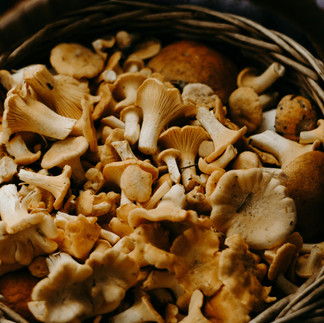Effects Of Carnivore Diet. It Might Help You Reset, But Not Thrive Long-Term
- Elina Aiz

- May 11
- 4 min read
Updated: Jul 5

If you’re feeling overwhelmed by all the noise around nutrition, especially with the rising tide of raw carnivore influencers claiming it’s the ultimate cure to all modern illness - pause. Take a breath. Let’s unpack this, honestly and clearly.
As a health coach, I’ve seen the pendulum swing hard in both directions. First, it was plant-based everything. Then raw veganism. Now we’re seeing the extreme opposite: zero plants, only meat - sometimes raw, organs included. And just like before, people are either praising it as a miracle or feeling guilty and confused for not jumping on board.
So here’s what I want you to know:
Carnivore is powerful, but it’s not magic.
There’s a reason some people feel amazing when they go full carnivore, especially short term:
It removes all potential irritants: no gluten, no seed oils, no processed sugars, no gut-disrupting fiber, no plant defense compounds like lectins or oxalates.
It’s an extreme elimination diet. You’re eating the most bioavailable, nutrient-dense foods, and avoiding everything else.
For someone with autoimmune issues, histamine overload, or chronic gut dysbiosis, this can feel like a miracle. Less bloating. Clearer thinking. Better energy. And yes - meat, especially ruminant meat, is incredibly healing.
I saw big changes in my own health when I shifted toward an animal-based diet. My energy, digestion, and mental clarity all improved. That said, I’ve never gone fully carnivore yet. I’m planning to do a short carnivore reset in the colder months to help address some lingering histamine issues. But I’m not doing it now, because it’s spring and summer, when nature offers us an abundance of wild food and antioxidants: mushrooms, blueberries, fresh herbs, and bitter greens. These are not the months to restrict - they’re the time to nourish and rebuild.
The body thrives on adaptation, NOT restriction.
Long-term, a hyper-restrictive approach like carnivore comes with trade-offs:
You might lose microbial diversity in the gut, because your gut bacteria need variety to flourish. It likes to be surprised.
You may miss out on key phytonutrients that support detoxification, hormone metabolism, and longevity.
You might lose metabolic flexibility.
Your hormones may tank.
You risk psychological rigidity around food, which isn’t health - it’s control disguised as wellness.
Most long-term carnivores eventually find themselves adding things back in, like berries, honey, raw dairy, even fruit or cooked veg. Because real, sustainable health isn’t about dogma and fear. It’s about adaptability.
Why people go all-in on extremes?
Let’s zoom out. These extreme trends are rarely just about food. They’re often about control, identity, and belonging:
People feel failed by the system, by doctors, diets, and years of poor health.
They discover something that finally gives them relief, and it becomes their new belief system.
Online echo chambers reinforce it. “If you’re not raw carnivore, you’re poisoning yourself.”

This is the same psychological mechanism we saw in the raw vegan world years ago. People went all-in, felt euphoric (often from detox or adrenaline), and preached it as the one true path. Then… the cracks began to show. Hair loss. Bone issues. Fertility challenges. Hormonal crashes. And quietly, many walked away.
Every extreme feels like ‘the answer’—until the cracks begin to show.”
What happens when the dust settles? Carnivore diet long-term effects:
Right now, carnivore is having its moment. But science moves in cycles. We get excited about a new idea, study it deeply, overuse it, and then rebalance. Same will happened for carnivore diet and its long-term effects. We will see more nuanced research emerge:
Studies on gut microbiome and hormone balance with long-term meat-only diets
Potential risks of long-term nutrient imbalances
The psychological toll of dietary rigidity
Just like veganism, raw carnivore will level out and those who benefit most will be the ones who used it strategically, as a reset. Not a religion.
So what should you do?
If you’re confused, you’re not alone. If you’re feeling tempted but unsure, that’s OK. You don’t need to go to extremes to heal, but it's also OK to test things for yourself, just remember, how you are feeling in the first 3 months might not be how you will feel after a year, pay attention and be flexible and open to change.
Instead, here’s what I recommend:
Use carnivore diet as a therapeutic phase, not a forever diet.
Focus on high-quality ruminant meats, organ meats, and simple additions like fruit or honey, if tolerated.
Heal the gut. Lower inflammation. Rebuild nutrient stores.
Then slowly expand. Add color. Add variety. Let your body relearn how to thrive on real food from nature, not just one kingdom of it.

"Nature already gives us a roadmap - if we’re willing to listen.”
And most importantly - don’t let any influencer, trend, or fear-based narrative pull you out of your own intuition. Healing doesn’t come from copying someone else’s rules. It comes from reconnecting to your own body’s signals and building resilience - not restriction.








Comments